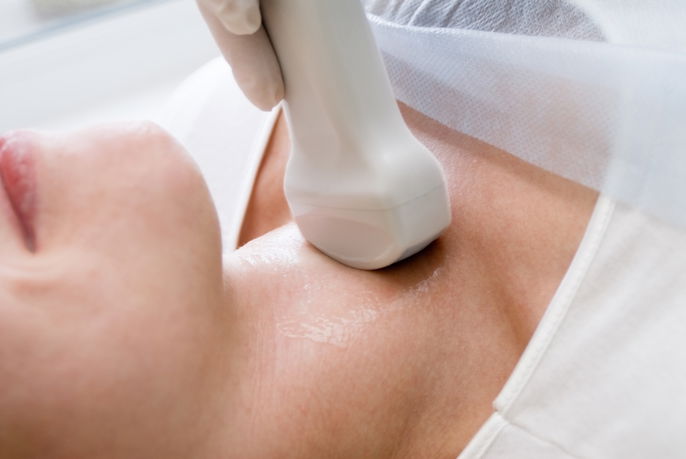Hashimoto's disease, also known as Hashimoto's thyroiditis, is an autoimmune disorder in which the immune system attacks the thyroid cells, causing inflammation of the thyroid gland. This results in temporary hyperthyroidism and eventually culminates in hypothyroidism.
This is one of the most common causes of hypothyroidism, especially in adult women, causing symptoms such as excess fatigue, hair loss, brittle nails, and even memory loss.
Most of the time, the disease starts with pain-free swelling of the thyroid which is identified during a routine medical examination. In other cases, thyroiditis can cause a feeling of fullness in the throat, which does not cause pain when touched. In either case, treatment with an endocrinologist should be started as soon as possible to ensure normal function and to prevent complications.

Most common symptoms
The most common symptoms of Hashimoto's disease are similar to those of regular hypothyroidism:
- Easy weight gain;
- Fatigue;
- Cold, pale skin;
- Constipation;
- Cold intolerance;
- Muscle or joint pain;
- Slight swelling at the front of the neck where the thyroid is;
- Thin hair and nails.
This condition is more common in women and is usually identified between 30 and 50 years of age. Initially, the doctor may only diagnose hypothyroidism and, after doing other tests, identify a diagnosis of Hashimoto's disease.
Causes of Hashimoto's disease
The origin of Hashimoto's disease is still unknown, however, it is possible that it is caused by a genetic mutation (people with Hashimoto's typically have a family history of it). Other studies suggest that this type of thyroiditis can happen after a viral or bacterial infection that ends up causing chronic inflammation of the thyroid.
Although there is no known cause, Hashimoto's disease seems to be more frequent in people with other endocrine disorders ( like type 1 diabetes or adrenal gland malfunction) or other autoimmune diseases (like pernicious anemia, rheumatoid arthritis, Sjögren's syndrome, Sjögren's disease, Addison's disease, or lupus). It can also occur in people with a history of ACTH deficiency, breast cancer, hepatitis and an H. pylori infection.
How a diagnosis is confirmed
The best way to diagnose Hashimoto's disease is to consult an endocrinologist. He or she may order bloodwork that checks for T3, T4 and TSH levels, as well as anti-thyroid antibodies (anti-TPO). TSH is usually normal or increased with Hashimoto's.
Some people may test positive for anti-thyroid antibodies but have no symptoms. This is considered to be subclinical autoimmune hypothyroidism, which does not require treatment.
Treatment plan
Treatment is usually only indicated when there are changes in TSH levels or if symptoms are present. Treatment usually begins with hormone replacement with the use of levothyroxine for 6 months. After that time, it is usually necessary to go back to the doctor to reassess the thyroid size (ie. to see if it has improved) and recheck blood levels to see if dosing continues to be therapeutically effective.
In cases where there is difficulty breathing or eating due to swelling of the thyroid, a surgical procedure called a thyroidectomy may be recommended to remove the gland.
Diet recommendations
Diet can also greatly affect the health of the thyroid and, therefore it is recommended to follow a healthy diet with foods rich in nutrients that are promote thyroid function (specifically iodine, zinc, and selenium).
Possible complications
When Hashimoto's disease affects hormone production and is not properly treated, some health complications may arise. The most common complications include:
- Heart Problems: People with uncontrolled hypothyroidism are more likely to have elevated LDL levels in their blood, which increases their risk of heart dysfunction
- Mental health problems: Due to a decrease in thyroid hormone production, the person may feel more fatigued, which can lead to mood changes and even depression;
- Myxedema: Otherwise known as severe hypothyroidism, this condition leads to swelling of the face and even more severe symptoms such as a total lack of energy and loss of consciousness.
If you suspect you have thyroiditis, you should consult your doctor, who may refer you to an endocrinologist to complete testing and start treatment as soon as possible.






























